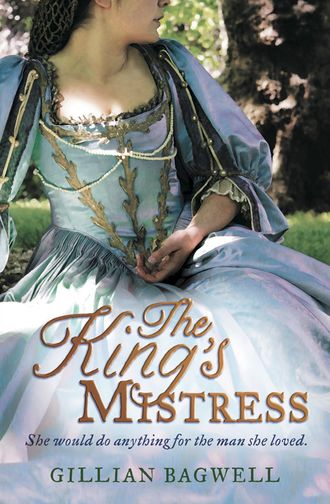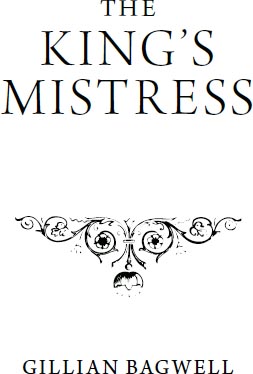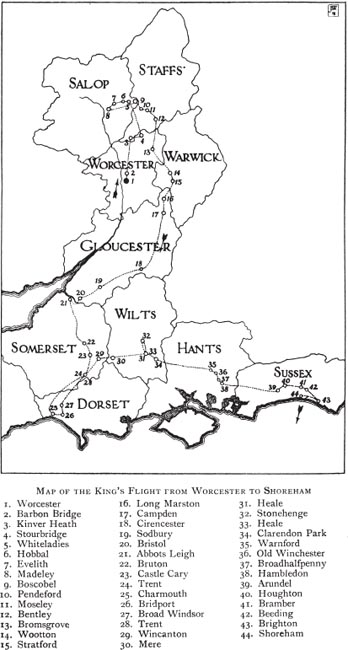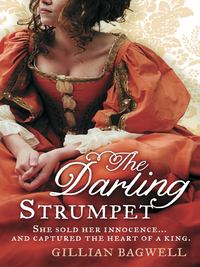
Полная версия
The King’s Mistress



Copyright
This novel is entirely a work of fiction The names, characters and incidents portrayed in it are the work of the author’s imagination. Any resemblance to actual persons, living or dead, events or localities is entirely coincidental.
AVON
A division of HarperCollinsPublishers Ltd
1 London Bridge Street,
London SE1 9GF
www.harpercollins.co.uk
First published in the U.S.A. by Berkley Publishing Group, an imprint of Penguin Group (U.S.A.) Inc., New York, NY, 2011
Published by HarperCollinsPublishers 2012
Copyright © Gillian Bagwell 2011
Gillian Bagwell asserts the moral right to be identified as the author of this work
A catalogue record for this book is available from the British Library
All rights reserved under International and Pan-American Copyright Conventions. By payment of the required fees, you have been granted the non-exclusive, non-transferable right to access and read the text of this ebook on-screen. No part of this text may be reproduced, transmitted, downloaded, decompiled, reverse engineered, or stored in or introduced into any information storage and retrieval system, in any form or by any means, whether electronic or mechanical, now known or hereinafter invented, without the express written permission of HarperCollins.
HarperCollinsPublishers has made every reasonable effort to ensure that any picture content and written content in this ebook has been included or removed in accordance with the contractual and technological constraints in operation at the time of publication
Source ISBN: 9781847562593
Ebook Edition © July 2012 ISBN: 9780007443314
Version 2018-07-23
This book is dedicated to the memory of
Khin-Kyaw Maung
I miss you every day.
and
Ross Ireland
You left us far too soon.
Table of Contents
Title Page
Copyright
Dedication
Map
Chapter One
Chapter Two
Chapter Three
Chapter Four
Chapter Five
Chapter Six
Chapter Seven
Chapter Eight
Chapter Nine
Chapter Ten
Chapter Eleven
Chapter Twelve
Chapter Thirteen
Chapter Fourteen
Chapter Fifteen
Chapter Sixteen
Chapter Seventeen
Chapter Eighteen
Chapter Nineteen
Chapter Twenty
Chapter Twenty-One
Chapter Twenty-Two
Chapter Twenty-Three
Acknowledgments
Author’s Note
Read on for an extract from her first novel, The Darling Strumpet.
Author the Author
Also by Gillian Bagwell
About the Publisher

CHAPTER ONE
THE AFTERNOON SUN DAPPLED THROUGH THE LEAVES OF THE oak tree. Jane Lane sat in its shade, her back against its stalwart trunk, the Second Folio of Shakespeare’s works open on her lap. She had sneaked her favourite book from her father’s library and taken it out near the summerhouse, where she could read and dream in peace.
Though what need have I to sneak? she asked herself. I am five and twenty today, and if I am ever to be thought no longer a child, it must be so today. Lammas Eve.
“On Lammas Eve at night shall she be fourteen,” her Nurse had said of Juliet Capulet. Jane shared Juliet’s birthday, the thirty-first of July, but Juliet, at not quite fourteen, had found her Romeo, to woo her and win her beneath a moon hanging low in a warm Italian night sky. But not I, Jane thought. I have come to the great age of five and twenty, and but one man has stirred my heart, and that came to naught. An old maid, her eldest sister, Withy, would say.
What is wrong with me? Jane wondered. Why can I not like any man well enough to want to wed him? It is not as though I am such a great prize. Pretty enough, I suppose, in face and form, but no great beauty. Witty and learned, but those features are of little use in a woman, of little use to a man who wants a wife to be mistress of his estate and mother to his heirs.
What if there will never be someone for me?
She pushed the thought away. Surely there was more to think about, more to do than be merely a wife, exchanging the protection and stability of her father’s home for that of a husband’s.
She looked down again at the book in her lap, opened to The Life of Henry the Fifth, and read over the opening lines spoken by the Chorus, which never failed to thrill her.
O, for a muse of fire, that would ascend
The brightest heaven of invention!
A kingdom for a stage, princes to act,
And monarchs to behold the swelling scene.
Yes, that was what she wanted. A swelling scene, full of romance and adventure, not this dull life in the Staffordshire countryside. She read on.
Then should the warlike Harry, like himself,
Assume the port of Mars, and at his heels,
(Leash’d in like hounds) should famine, sword, and fire
Crouch for employment.
That sort of man would rouse her blood. Sword in hand, armour on his back, astride a great war horse, exhorting his men onward.
Once more, unto the breach, dear friends! …
Cry “God for Harry, England, and Saint George!”
Jane sighed. There was no king in England now. King Charles was, unthinkably, dead, at the hands of Parliament, two years since. The war had raged for years, those who wanted there to be no king had won, and now Oliver Cromwell ruled. The king’s twenty-one-year-old son, Charles, the exiled Prince of Wales, had been crowned as king in Scotland at the beginning of the year, but Jane’s father and brothers and cousins, the neighbours and the newsbooks, whether Royalist or Parliamentary in sentiment, did none of them expect to see a king upon the throne of England again.
Jane’s family had mingled with kings since time out of mind. An ancestor of hers had come into England with William the Conqueror more than six hundred years earlier, and Lanes had gone crusading with Richard the Lionheart a century after that, and fought at the side of the Lancastrians in the War of the Roses. Jane’s own great-granduncle William Cecil, Lord Burleigh, had been councillor to the great Elizabeth, the Tudor rose that had blossomed from those wars, and in living memory the family tree had borne a Countess of Oxford. And many generations back, Jane herself was descended from King Edward I, called “Longshanks” and “the Hammer of the Scots”.
But the time for kings had gone, and in their place sat a parliament. What a grey and bleak sound that word had, Jane thought. Would she ever in her life feel excitement again?
The thought again raised the agitation that had rumbled at the back of her mind all day. Her brother John’s friend Sir Clement Fisher was coming to dinner, and she rather thought he was likely to ask her to marry him. She didn’t want to, really. It was not that there was anything wrong with him. He had served honourably in the wars. It was just that she felt no stirring of passion when she was with him. But if she said no? What were her chances then?
Jane’s eyes strayed to the southeastern horizon. Somewhere that way lay London. Throughout her childhood, London had seemed a place of magic, and she had longed to go there. When she was ten, the King’s Company of players had given a performance in Wolverhampton, and her father had taken her, all that five miles away, to see them, as a special treat for her birthday. Henry the Fifth, the same play that lay open on her lap. She had never been so excited in her life as when that first actor strode onto the stage and began the speech that ran through her mind today.
Afterwards, she had begged her father to take her to London, that she might see more plays. “Someday,” he had replied, laughing.
But someday had not come soon enough, and when she was sixteen, Cromwell had ordered the playhouses closed, torn down, the plays to be no more. All of Jane’s family hated Cromwell, but she felt an especial malice towards him for that. He had not only killed the king, he had killed all the past kings as well—glorious Harry V; his father, Bolingbroke, who had dethroned poor lost Richard II to become Henry IV; and all the rest of them.
“Jane!” Withy’s voice cut through Jane’s thoughts. There was no time to think of tucking the book away before Withy heaved into view, pink and exasperated in the heat.
“There you are! Reading again.”
The verb held a freight of disapproval. Jane was the youngest of the Lane siblings, and Withy, thirteen years her senior, still seemed to regard her as a naughty child.
“Sir Clement Fisher will be arriving before long. You haven’t much time to make yourself presentable.”
Withy stood looking down at Jane, her broad face damp with perspiration, and Jane could see her own reflection in her sister’s face as clearly as in a mirror. She had pulled off her cap, and her auburn hair was curling untidily around her shoulders. Her skirt was dusty, and her face warm in the sun. She was comfortable, which meant almost by definition that she was not properly dressed for company. Especially Sir Clement Fisher.
“You know right well he’s like to ask for your hand tonight,” Withy said, swatting at a fly that buzzed around her head. “I’d have thought you would want to take some care for your appearance, this night of all nights. You’re not like to have many more offers, you know.”
“Oh, Withy,” Jane protested, but Withy carried relentlessly on.
“You know it’s true. How many suitors—perfectly good men—have you turned away? And for what reasons? Too old, not handsome enough, not learned enough. And now you’re five and twenty, and Sir Clement is about the only Royalist gentleman left within fifty miles. But I suppose there’s something wrong with him, too?”
“There’s nothing wrong with him,” Jane said. “And yet, I cannot bring myself, though I have truly tried, to have any great desire to be his wife. Or anyone’s wife.”
“And, pray, what else is there for you to be?” Withy’s voice rose in impatience. She stood, hands on sturdy hips, waiting for an answer.
“I don’t know,” Jane said.
Withy was right. She could be someone’s wife, and have a home of her own. Otherwise, she would live on in the homes of her brothers and sisters, never going hungry, never wanting for safety or comfort, but never mistress of her own house or her own life, never with money of her own or the means to be anything other than a spinster relation.
“Well,” Withy said. “I beg you to at least not shame the family or discommode Sir Clement. He’s riding all this way for your birthday supper, the least you can do is wash your face and try to look more like a lady than a milkmaid.”
“And so I shall,” Jane agreed, getting to her feet and dusting off the cover of the folio with her sleeve. “But I want to walk first a bit.”
Withy rolled her eyes.
“Well, don’t be long. In faith, I don’t understand you. Any other woman would be counting the hours until supper time.” She twitched her skirts in annoyance at the buzzing fly and trudged away towards the house.
Jane regretted not having asked her sister to take the heavy folio inside, but likely the request only would have brought a scathing remark about the foolishness of having brought the book outside in the first place.
The orchard lay up the slope some quarter of a mile north of the house. Jane had always loved to escape from the rest of the world there, especially in summer, when the scent of ripening fruit permeated the air. Apples, quinces, pears, apricots, plums, cherries. The trees were laid out in rows, each kind of fruit with its distinctive leaves. Many of the trees were ancient, had stood for far longer than the seventy-five years that the present Bentley Hall had sat on the site of a previous house by that name. Some of the trees had newer tops grafted onto old trunks and still did not look all of one piece. As a child, Jane had liked to imagine that fairies lived in the orchard and watched her, and that perhaps if she were quiet and wished hard enough, they might come out, and perhaps even take her back with them to visit their magic realm.
Jane stopped beneath a plum tree with particularly wide and spreading branches that she had loved to climb as a little girl, and which for some reason had always given fruit sooner than the rest of the trees. One perfect plum, deep purple and fat in its ripeness, hung within reach. She plucked it, and setting the book down carefully on the roots of the tree where it would not be soiled, she bit into the fruit. It was warm from the sun and a spurt of juice trickled down her chin as she ate. The flesh was satisfyingly firm but seemed almost to dissolve with sweetness. Jane threw away the stone and licked her fingers clean, then wiped them on her apron before picking up the book. She would go to the end of the orchard before turning back, she decided.
She had only been walking for another minute or so when her eye was drawn to movement down the lane between the trees. An unfamiliar horse was tethered to an apple tree, and beyond Jane saw three caravans, with smoke rising from beyond them. Gypsies.
Jane’s mother grew tight-lipped with outrage at the thought that the wanderers should presume to camp on the family’s property, but from the time she was a little girl Jane had always been fascinated by the Gypsies, moving from place to place, always seeing something new, with nothing to hold them down. This far from the house they disturbed no one, and as far as she was concerned, they were welcome to the fruit they might pick and the stars above Bentley Hall wheeling over their heads for a few nights.
A black-and-white-spotted dog darted out from under one of the wagons, followed by a smaller rust-coloured mongrel that nipped at its heels. From beyond the wagons a donkey brayed. The scent of food wafted on the air. Jane couldn’t see any of the human inhabitants of the camp, but they were probably cooking the meal or tending to the animals beyond the caravans.
The thought of food reminded her that she should be making herself ready for supper and the visit from Sir Clement Fisher. She turned and made her way towards the house, the heavy scent of fruit in her nostrils. The trees in the orchard were so thickly leaved that they blocked the view ahead of her. A stranger would not have known which way to go. Jane was just remembering a time when as a small child she had gone into the orchard to play and got lost, enchanted by the clouds of blossoms overhead that led her deeper and deeper among the gnarled trunks, when she saw a dark-haired young man sitting with his back against one of the trees ahead of her, his legs splayed out in front of him, his eyes closed. One of the Gypsies, without doubt.
He was not more than ten feet away, and what stopped her in her tracks was the jolt of seeing that one of his hands was in motion in his lap, grasping a stalk of vivid ruddy flesh. Jane had never seen a human phallus and her first thought was that it looked nothing like the somewhat repellent appendages of dogs and bulls, and the second was that it was far bigger than she had ever thought a man’s member would be.
The sound of Jane’s footsteps on the ground brought the man’s eyes open with a start. His eyes met hers with surprise, but no shame. In fact, he tilted his head to one side and smiled at her appraisingly. His hand had stopped its rapid up-and-down movement and now he stroked himself languorously, luxuriating in the sight of her, it seemed. He had the look of a fawn, that sensuous forest creature, half man, half beast. His dark hair fell in unruly curls around his head; his brown eyes, the colour of hazelnuts, shone on her warmly. His teeth were vivid white against the florid pink of the tongue that ran along them.
All of this had passed in a flash, less than a second, and Jane stood rooted to where she stood as the young man spoke.
“Come, sit on my lap, sweetheart.”
It was an invitation. Not an insult or a taunt or a challenge or a threat. He smiled at her again, his swarthy face flushed and damp, and he opened his hand to show Jane the living wand he cradled.
“Come,” he repeated. “And I’ll make thee gasp and cry out for more.”
Jane felt herself flushing violently, her heart beating in her throat, but she was not afraid. In fact she realised with dismay that she felt a pleasurable thrill at the site of this Gypsy lad, so open in his appreciation at the sight of her, so lazily undisturbed at her intrusion into his solitary pleasure. The realisation that she ought to be shocked struck her, and at last brought movement to her feet.
“I can’t—”
It was absurd, she thought, to be explaining why she couldn’t stay or accept his outrageous offer, and she gathered her skirts and ran from him, away through the trees, his amused laughter ringing in the air.
Out of sight of the young man, Jane slowed to a fast walk. She was shaking. She must calm herself before she reached the house, she thought. She leaned against a tree, willing her heart to slow its pace and her hands to stop their sweating. She felt as though she must bear some visible mark of the encounter, as if Withy or her mother or worse yet Sir Clement Fisher would see as soon as they set eyes on her that she had been touched by some taste of lasciviousness, had given in to the urge as surely as if she had lowered herself onto that purple-headed shaft in the Gypsy’s hand and given herself to him like some Maid of Misrule going to a Jack-o’-the-Green on a midsummer night.
AS JANE CLIMBED THE STAIRS TO HER ROOM, NURSE BUSTLED ALONG the upstairs hall with an armful of clean linen, thwarting Jane’s hope that she would reach her room unseen. Jane flushed at the sight of the stout figure. Nurse had cared for Jane and her siblings and was now tending her second generation of Lanes, the children of Jane’s brother John, and decades of sniffing out mischief prompted her to peer more closely at Jane.
“And where have you been gadding, lambkin? You look as though you’d seen a ghost.”
“Just in the orchard,” Jane said. “It’s warm out there in the sun is all, and I must hurry if I’m to bathe before supper time.”
The reminder about the evening’s birthday celebration and the presence of Jane’s suitor brought a grin to Nurse’s round face.
“Ah, that’s it, then. Thinking about that young man. Well, get you to your room and I’ll have Abigail bring the tub.”
THE TUB FILLED AND ABIGAIL GONE, JANE REMOVED HER CLOTHES, luxuriating in the freedom she always felt when she was released from her tight stays. Her mind went back to the Gypsy lad, and his lazy glance that had raked her from head to toe. She flushed again. He had liked what he had seen, that was clear enough. No man had ever looked at her with such open cupidity and it made her consider herself in a new light.
She went to stand before the long mirror that her father had bought for her at such great cost at Stafford. She had never dared to examine her naked body so closely, and felt a little ashamed, but now she gazed at her reflection, trying to see herself as a lover might. She had always thought her breasts were too small, but they were round and high, her nipples a blushing pink against her creamy skin. She cupped them in her hands, imagining what it might feel like to have a man’s hands on her, firm fingers caressing and kneading.
Her waist was slim, her legs long and firm. The soft thatch of reddish brown hair at the cleft of her legs almost but not quite concealed the secret place beneath. She let her hands drift to her buttocks. Her muscles were smooth and sleek from walking and riding. Unwomanly, she could hear Withy saying, but it was good to feel strong and supple and alive.
She dipped a toe into the tub to test the temperature. It had cooled enough to be pleasantly warm, and she climbed in, leaning her back against the high end. The tub was not long enough to let her straighten her legs, and her thighs fell open. She thought of the laughing young man, the look of intense pleasure that had suffused his face in the instant before he had seen her. Was it possible for a woman to give herself the same pleasure?
She usually forbade herself from feeling anything when she wiped herself after urinating, but she knew the sensations that fleeted at the edge of her touch, and now she gave in to the curiosity building within her. She slipped a hand beneath the water, tentatively touching the forbidden place. The bud at the centre was engorged under her fingers, throbbing and alive. It felt as though it would jump as she moved her fingers over it, letting the water tickle and tease.
She was breathing hard, and let her hand move in circles, delicately, softly. A tremor was building within her. Was this what it was like to be with a man? But that act involved the man’s part, the part of him that melded with a woman. She thought of the engorged flesh bobbing like something alive in the Gypsy’s hand, and imagined what it might feel like to have such a thing inside of her. She slipped two fingers inside herself, and found that she was slippery and warm. She moved her fingers deeply in and out as she let her thumb caress the rosebud at her centre. What had taken her so long to make this astonishing discovery? She wanted the sensation to last forever, but a wave was building inside her that she could not hold back. She pressed her hand hard, deep into her and against herself, and gasped, holding back the cry that she wanted to voice. She was shocked to realise that within this private little earthquake she wanted to be calling his name, whoever he was. Not the Gypsy, not Sir Clement, or any man she had ever met. Some warrior prince perhaps.
The wave crested and passed. She was alone in a tub of warm water and guiltily removed her hand.
Maybe Withy was right. Maybe such men existed only in plays and fairy tales.
DINNER THAT EVENING WAS A FESTIVE AND CROWDED AFFAIR. IN honour of Jane’s birthday and to accommodate the large gathering, the meal took place in the banqueting house that stood to the east of Bentley Hall. Jane had always loved the banqueting house, built in the eccentric Flemish style with high chimneys and dormer windows—a fanciful edifice designed to surprise and delight. Besides those that lived in the family home—Jane and her parents; her oldest brother John; his wife, Athalia; and their nine children; and her brother Richard, only a year older than she—her brothers Walter and William and their wives were there, as well as Withy and her husband, John Petre; her cousin Henry Lascelles; and of course Sir Clement Fisher, seated beside Jane. Her health was drunk and all were in good spirits.



